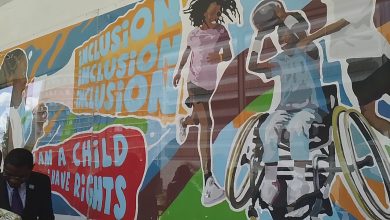By Jacob Ngwenya
People cannot advocate for their human rights if they are not aware of them. Including the lived experiences of persons with mental health conditions in the making of decisions on mental health issues, policies, laws and service planning can positively influence outcomes.
This call was made by people with mental health lived experiences on occasion of the World Mental Health Day that is celebrated every year on October 10 globally.
World Mental Health Day 2023 is an opportunity for people and communities to unite behind the theme ‘Mental health is a universal human right” to improve knowledge, raise awareness and drive actions that promote and protect everyone’s mental health as a universal human right.
Mental health is a basic human right for all people. Everyone, whoever and wherever they are, have a right to the highest attainable standard of mental health.
This includes the right to be protected from mental health risks, the right to available, accessible, acceptable, and good quality care, and the right to liberty, independence and inclusion in the community.
Good mental health allows us to cope with challenges, connect with others and thrive throughout our lives. It’s vital and deserves to be recognized and respected.
Good mental health is vital to our overall health and well-being. Yet one in eight people globally are living with mental health conditions that affect their physical health, general well-being, how they connect with others, and their livelihoods.
Mental health conditions are also affecting an increasing number of adolescents and young people. Having a mental health condition should never be a reason to deprive a person of their human rights or exclude them from decisions about their own health.
Yet, the world over, people with mental health conditions continue to experience a wide range of human rights violations. Many are excluded from community life and discriminated against, while others cannot access the mental health care they need or can only access care that in some way violates their basic human rights.
Today, I join other people living with mental health conditions as we unite on a special day set aside for us to amplify our voices. During the World Mental Health Day, we claim our space in universal health, declaring that mental health and well-being are fundamental human rights that should be enjoyed by everyone to ensure a good and a meaningful life.
It is vital to ensure that everyone accesses community mental health services and support. In particular, access to mental health support and resources in early life can make a real difference to the health and well-being of young people and adults in later life. This should be promoted as a priority in Zimbabwe given the growing burden of mental health conditions affecting all ages.
Despite the fact that mental health being a universal human right, with every citizens having an inalienable right to access quality treatment that meets their needs and respects their rights, the situation on the ground is different since mental health is not prioritized in the Zimbabwean health agenda.
This is seen by its relegation to the any other business section in public health meetings, giving it far less attention as compared to physical health issues despite the fact that there is no health without mental health.
There are only four major mental health referral centres namely Sally Mugabe Central Hospital, Parirenyatwa Group of Hospitals both in Harare, Ingutsheni Mental Hospital in Bulawayo and Ngomahuru Mental Hospital in Masvingo.
These centres were in existence pre-independence and are the only ones still serving more than double the population 40 years later. This unfortunate scenario spells disaster on both the doctor to patient as well as the nurse to patient ratios.
This creates burn out on the part of the available medical staff thereby compromising the quality of service that is already under the bus due to the brain drain that hits hard on the health sector.
People living with mental health conditions enjoy the protection by the Mental Health Act as well as other pieces of legislation.
However, drug stock outs are now the order of the day and asking the incapacitated people who are supposed to be under medical protection and care to go and buy medicines at overpriced private pharmacies is tantamount to negligence.
This has seen a spike in relapses of acute mental health disorders.
Relapses, worsen all health conditions, especially mental health disorders. They drive mental health related stigma and discrimination, which is inevitable as some of those that relapse roam the streets and some becoming violent.
In worse cases, innocent lives are lost in the process.
One wonders what happened to the tax imposed on all mobile phone recharge card sales that was meant to buy mental health medication.
Jacob Ngwenya is a health policy entrepreneur with Beat NCDs Zimbabwe who has vast lived experience in disability, HIV and no communicable diseases (NCDs). He dedicates his time and effort to creating an enabling environment for these vulnerable groups to help foster the principle of inclusion of people with lived experience in co-creation, implementation, monitoring and evaluation of policies, programs and services that affect them. He can be contacted on Tel : +263785837994/Email : [email protected]




